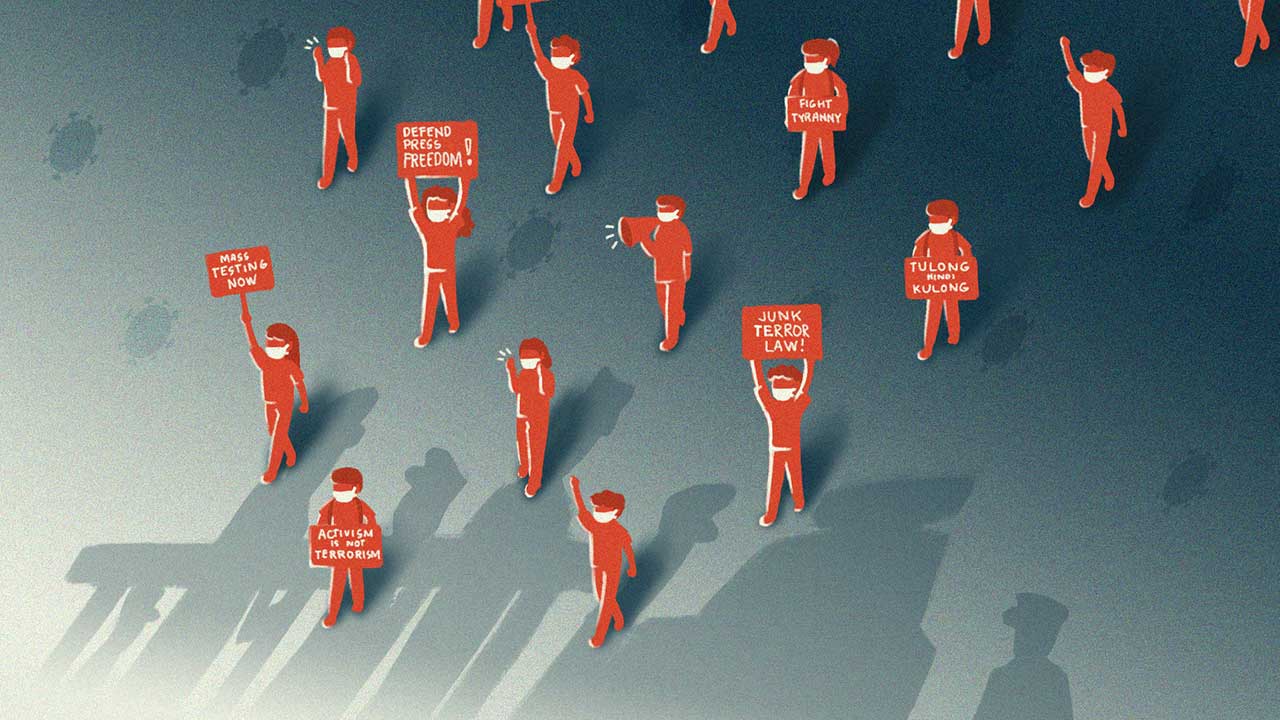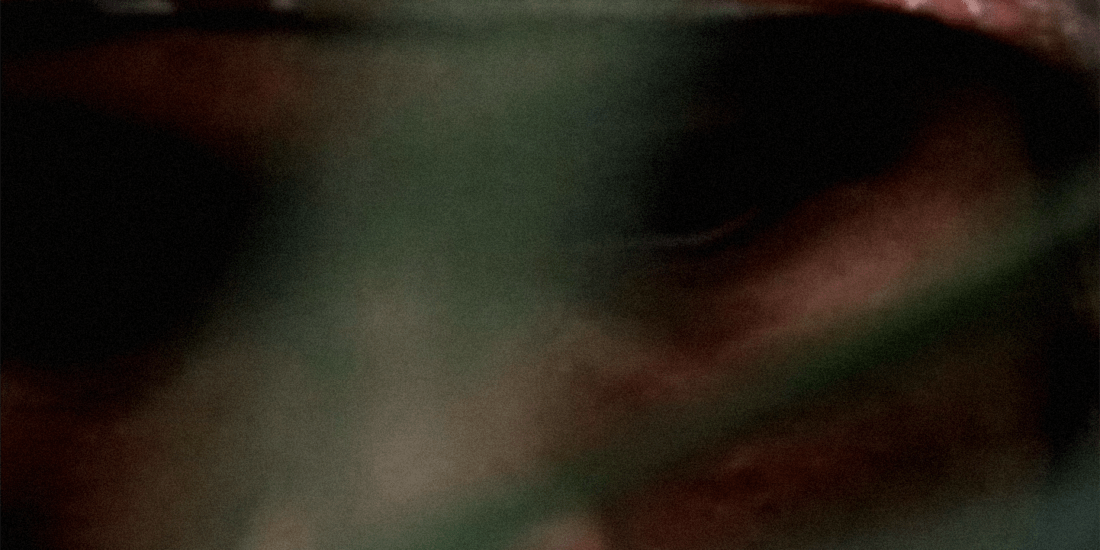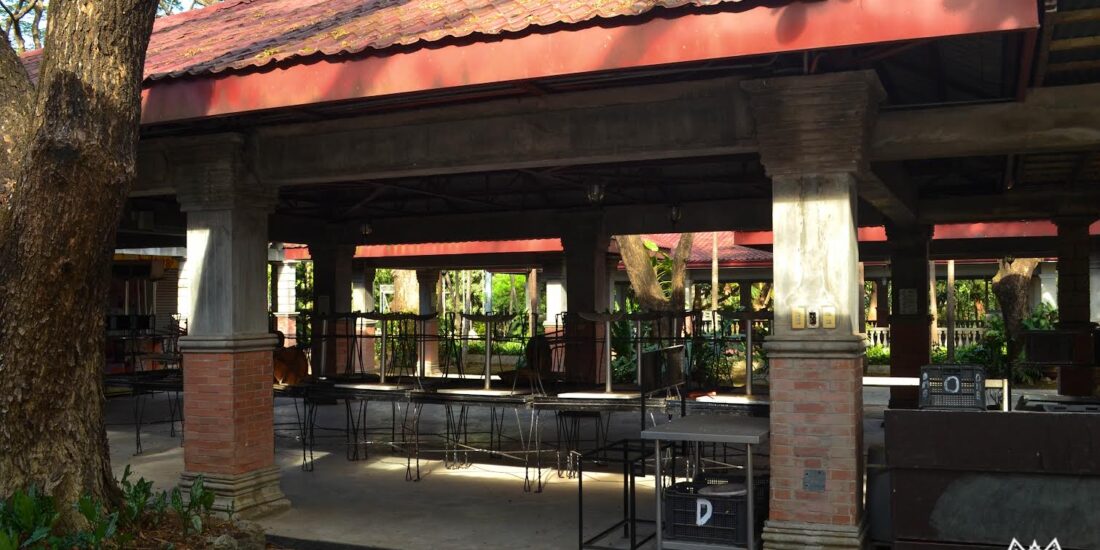The good fight continues during the pandemic
Activism always carried its own set of dangers. As the need for reform challenges the status quo, it ends up clashing with influential people, along with different sets of beliefs. History itself is littered with cases of red-tagging, police brutality, illegal detention, and violent murders. Whenever the people take the fight into the streets, it’s an unspoken fact that they risk their lives with it.
Not even the looming threat of the pandemic can redefine the meaning of activism and what it means to stand up for what is right. If anything, it only proves that braving the streets despite potential danger matters now more than ever.
In an email interview with The HERALDO FILIPINO, two interviewees share their thoughts and experiences with activism.
The dangers of activism
When asked if they have encountered police intervention during rallies, the first interviewee, “Juan” stated that “Wala pa akong naranasan ng rurok ng kanilang karahasan (police) katulad na lamang ng kanilang panghihimasok sa UP (University of the Philippines) Cebu.”
“Mayroon lamang sa UP Diliman na mga militar na naka-abang sa mga checkpoint. Mayroong mga hinarang ngunit nang tanungin ay walang maibigay na rason kung bakit. Nagkaroon din naman ng mga online educational discussions upang ipaliwanag ang mga rason sa panawagan,” they added.
The second interviewee, “Nena,” also expressed their experience on police intervention, which mostly ends up in peaceful negotiations between the police and activists. In worst-case scenarios, arrests happen where they have the assistance of lawyers and paralegal teams. Sometimes they reach out for help in social media.
“Sa totoo lang, bilib ako sa mga kasamahan, dahil hindi nila iniiwanan ang mga dinitena sa lahat ng oras hanggang sa makalaya ito,” Nena remarked.
Additionally, both interviewees also expressed their sentiments regarding the newly-signed Anti-Terrorism Law and the threat it poses for activists.
“Maraming kapahamakan ang maaaring mangyari sa atin sa kahit anong konteksto,” Juan stated, “Kailangan palitawin na hindi naman magiging mapanganib ang laban kung hindi gagamit ng dahas at panunupil ang puwersa ng estado. Matagal na ginagamitan ng puwersang mapanakit ang mga aktibista sa lungsod man o sa kanayunan. Ito na rin ay dahil sa takot ng mga naghaharing-uri na mawalan ng kapangyarihan dahil sa pag-oorganisa ng masa.”
Besides the danger that comes with protesting and the threat of the Anti-Terrorism Law, the mere fact that we’re in the middle of a global health crisis poses a whole other level of danger on its own.
Fighting through the dark
Following the dangers that come with activism alone, the stakes are even higher with COVID-19 on the loose. This is why, to ensure the safety of its attendees, twice as much the effort and discipline is required—something activists are always in abundance of.
Contrary to the popular belief, protesting in times of pandemic breaks the image of the chaotic, almost violent image of rallies the people seem to have in mind. Even during mobilizations, activists abide by social distancing protocols and practice necessary safety measures.
As Juan shares, there is meticulous preparation before going out to the streets, such as reminders to bring rubbing alcohol, wear face masks, and practice social distancing. In the protests, there are visual markers for social distancing, and organizers would distribute face masks and face shields.
“Ang mga puwersa ng estado ang siyang hindi sumusunod dito sa kanilang bulto-bultong pagdating at pag-abang,” Juan added.
But when they are not taking their cause to the streets, other alternatives still remain in the form of online kalampagan, educational discussions, social media rallies, and statements against injustices.
With most Filipinos now tied to social media, progressive groups are gaining more traction as netizens follow socially relevant issues, youth leaders, and influential personalities who use their platform to amplify the voice of the masses.
In terms of how rallies are mobilized during the pandemic, Nena highlighted how it actually caused more people to come together, united by one cause.
“Sa panahon ng pandemya, ay nagkaroon lang ng mga protocol na dapat na sundin. Para syempre maiwasan ang pagkalat ng virus. Ngunit, ang kinaibahan din nito sa ibang mobilizations, ay mas lumawak at mas rumami [sic, dumami] ang mga taong nakikiisa sa pagpapabagsak ng tiranya at pagkamit ng demokrasya,” they said.
Why it has to be now
When asked about what drives them to fight for their cause despite the dangers, Nena said that activism is not simply a form of complaint or a matter of personal interest. Fighting the good fight for them, has always been a matter of fighting for the future generation, as today’s decision becomes the fate of tomorrow.
“Para sa akin, ito yung paglaban para sa masa o para sa mamamayang Pilipino. Ito yung laban na naging daan para solusyonan ang libo-libong taon na paghihirap at pang-aabuso,” they said.
Nena furthered that now is the time to fight “ dahil kung hindi ngayon maaari pang makampante ang mga pasista at abusado na patindihin pa yung panunupil, nakawan ang dapat ay para sa mga mamamayan at madagdagan pa ang ninanakawan ng hustisya.”
If we look back at history, we’ll find that many of the greatest social changes were brought about by activism that lights long periods of darkness. Many of history’s greatest dictators were also ousted by such movements, one of the most notable being the People Power Movement.
“Nagkakaroon ng pangangailangang magsalita para sa mga taong hindi na makapagsalita. Hindi naman nag-iisa na tumutungo sa lansangan. Naririyan palagi ang masa,” Juan added.
They also shared how the definition of activism remains the same, with the good fight continuing to persist through the years.
“Ang kahulugan ng aktibismo ay hindi nagbabago sa kahit anumang konteksto. Ang tanging nagbabago ay ang materyal na kondisyon ng masa. Kung ipipilit na lagyan ito ng depinisyon ay maaaring tumayo ang salitang ‘pagmamahal’.”
***
Even as the good fight continues despite the pandemic, activism today shows that in standing up for what is right, silence is not an option.
“Hindi dapat manahimik sa isang panahon ng panunupil ng kalayaan at pagbalewala sa karapatan. Hindi dapat manahimik habang lantaran nang namamaslang ng inosenteng mamamayan at patuloy na minimilitarisa ang ating mga lansangan,” Juan stated.





